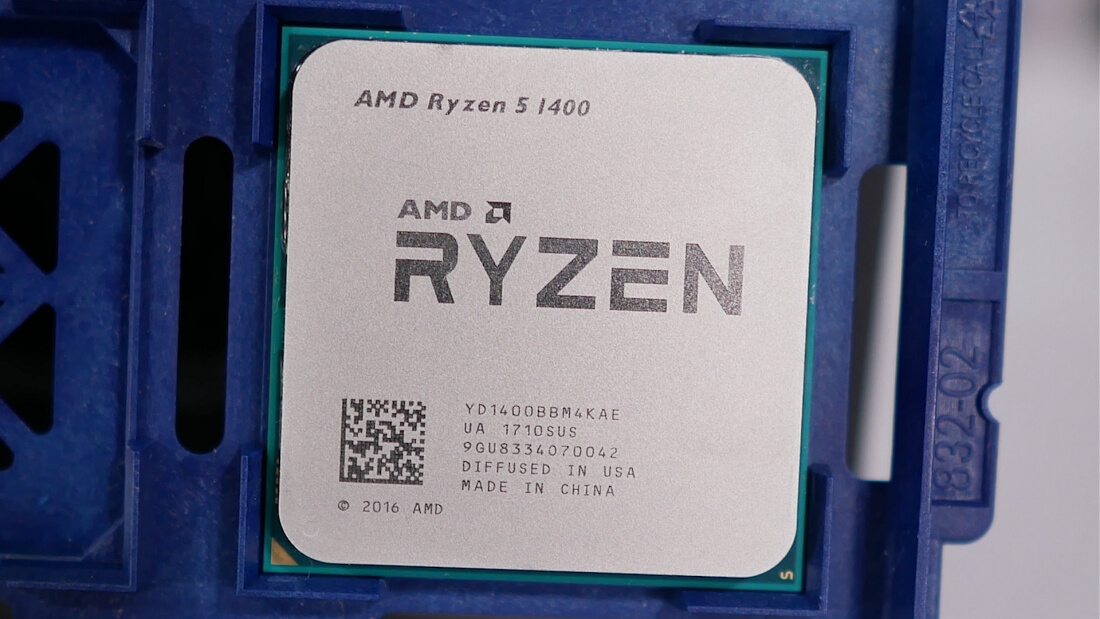Closing Thoughts
If we learned anything today, it's that trying to future proof a build is generally a waste of money and you're better off looking at what hardware combos deliver the best value in the games you currently play and then go from there.
For example, if you really only play Overwatch, the GTX 1070 is as good as it's possibly going to get for you and spending over $300 on the 7700K might not be the right move when the $160 Ryzen 5 1400 delivers a similar experience in this game, though this also appears true for many other titles as well.
Once overclocked, both processors are able to get the most out of the GTX 1070 in this CPU intensive title, though the R5 1400 was 10% slower than the 7700K with the GTX 1080 and that margin will grow with the 1080 Ti and even faster GPUs in the future.
Knowing that, some of you might be wondering why you wouldn't just invest in the 7700K. The biggest reason, again, is that it's not available for as good of a value right now and when that gap grows wider you'd have to upgrade your GPU to take advantage of it.
So we have to ask, how many of you stretching your budget for something like the GTX 1070 are going to upgrade your GPU within 24 months? I'd guess almost none of you. When it comes time to upgrade the GTX 1070 in 3 - 4 years is when we'd evaluate where the Ryzen 5 1400 and AM4 platform are at performance-wise.
It likely makes much more sense to take the money you save now and put that towards an upgrade in a few years time, rather than 'future-proofing' right now with the 7700K for example, which will no doubt just result in wasted money unless you're building a system for high-end gaming, particularly high refresh rate gaming.
The 7700K is the cheapest it's ever been as the 8700K is due out later this week, but at $310 plus $110 for a budget Z270 board and $30 for a cooler, you're looking at investing at least $450.
Again, the Ryzen 5 1400 is $160, while a B350 motherboard will set you back $70, a total of $230 or almost half the price, and you'll get about the same performance out of the GTX 1070 using AMD's processor, leaving you with ~$220 for future upgrades.
Naturally, all this will need to be re-evaluated soon when we get the 8th Gen Core CPUs and, of course, I'll be taking an in-depth look at those.
As for the argument that quad-cores shouldn't be used for gaming anymore (that is, 4-core/4-threaded quad-cores), well you can see why that's a bit silly. There's nothing wrong with the Ryzen 3 series of course if paired with a sensible GPU, but those buying $400 GTX 1070s or $500+ GTX 1080s, probably aren't looking at spending $100 on their CPU.
The Ryzen 3 series and Intel Pentium G4560 are designed to target budget shoppers and at the high-end of any budget shopper's wish list you'll find something like the GTX 1060, not a GTX 1080. For the vast majority of games, the R3 1200 and 7700K are indistinguishable with the GTX 1060. Then once overclocked the R3 1200 hangs in there surprisingly well even with a GTX 1070.
Overall, our advice is to determine your performance expectations for a given title or application and then find the best value hardware combination for your budget, which is easier said than done sometimes, but that's why we're here.


